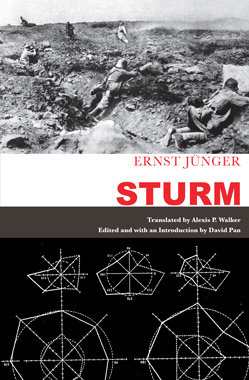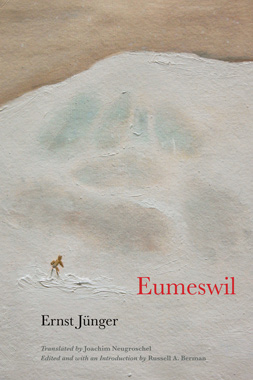Reading the latest novel by Michel Houellebecq, I remembered an essay by Maurice Blanchot that appeared in 1964, entitled “L’Apocalypse déçoit,” roughly translatable as “The Apocalypse Disappoints.” Originally devoted to the intellectual failure on the part of the French intelligentsia to deal with the possibility of nuclear annihilation, the title of that essay seems the perfect commentary to a plot that would sound nothing less than apocalyptic to a very sizable part of contemporary French society: the election of a Muslim president of the French Republic and the Islamization of its civil code. This disastrous occurrence, currently treated in the Western media as nothing less than a catastrophic finis Europae, is narrated by Houellebecq in his increasingly understated voice, now mostly situated halfway between deadpan satire, melancholic brooding, and a touch of occasional melodrama. Gone are the violent Islamic terrorists of Plateforme, the 2001 novel that ended with terrorist attack on European sexual tourists in Thailand. No more spectacular explosions of the 9/11 kind: if the Western way of life will go, it won’t be with a bang, but with a merely audible whimper.
|
For scholars of religion and literature, Michel Houellebecq’s Submission glimmers like a shiny lure. The storyline contains the sorts of details that appeal to an easy and seductive journalistic gloss. The year is 2022. A charismatic Muslim prime minister is elected in France, and an almost caricatured series of events follows: men and women are separated; the university president converts to Islam and weds a young wife; professors are coerced to convert or retire early; and so on. Add to the plot Houellebecq’s professed Islamophobia and the massacre at Charlie Hebdo, and you have the ingredients of a newsworthy book to be addressed by critics, journalists, and readers across the world. Like a number of reviewers, I initially found myself lured to consider religion, secularism, and contemporary French politics against the backdrop of the newly published English translation. But as I began reading, I was confronted with a challenge of a different sort. Michel Houellebecq’s novel Submission raises important questions about the cultural crises of modernity. It reflects on the dialectics of post-secularism and post-democracy in ways that have become particularly salient in light of the terror attacks in Paris and San Bernadino. Beginning with Vincent Lloyd’s post today, TELOSscope presents a series of discussions of the novel that will appear over the next several days. The violence of November 13, 2015, in Paris was met with an avalanche of grief and sympathy from around the world. Similar feelings followed the attack on Charlie Hebdo several months earlier. Paris is an iconic and beloved city; to see blood and bullet holes on the streets of Paris caused pain. Or rather, it causes professions of emotion. In an age of personal mediation, when we are expected to advertise our feelings about world events nearly in real time through tweets and Facebook posts, it is an open question how much feelings are felt—though they are most certainly performed. Affect circulates with ever increasing velocity, but such affect is increasingly shallow, more like a shared way of talking than anything having to do with inwardness. This does not mean mediated emotions are insignificant. As leftist critics of such public mourning charge, shared ways of talking about the world lead to shared ways of seeing the world and can ultimately legitimate violent ways of acting in the world. Coming on October 1st from Telos Press Publishing: Ernst Jünger’s Sturm. Pre-order your copy today, and we will ship it as soon as it is available. Sturm
Translated by Alexis P. Walker Set in 1916 in the days before the Somme offensive, Ernst Jünger’s Sturm provides a vivid portrait of the front-line experiences of four German infantry officers and their company. A highly cultivated man and an acute observer of his era, the eponymous Lieutenant Sturm entertains his friends during lulls in the action with readings from his literary sketches. The text’s forays into philosophical and social commentary address many of the themes of Jünger’s early work, such as the nature of war, death, heroism, the phenomenon of Rausch, and mass society. Originally published in installments in the Hannoverscher Kurier in 1923, Sturm fell into obscurity until 1960, when it was re-discovered and subsequently re-published by Hans Peter des Coudres, a scholar of Jünger’s work. This translation—the first to be published in English—brings to the English-speaking world a work of literature of interest not only to students of Jünger’s work and of World War I, but to any reader in search of a powerful story of war and its effects on the lives of the men who endure it. Telos Press Publishing is pleased to announce that Ernst Jünger’s Eumeswil is now available for purchase. Order your copy today in our online store. Eumeswil Translated by Joachim Neugroschel Telos Press Publishing is pleased to announce that Ernst Jünger’s Eumeswil is now available for pre-order. The book will be released on September 1, 2015. Pre-order your copy today, and we will ship it as soon as it becomes available. |
||||
|
Telos Press Publishing · PO Box 811 · Candor, NY 13743 · Phone: 212-228-6479 Privacy Policy · Data Protection Copyright © 2024 Telos Press Publishing · All Rights Reserved |
||||









